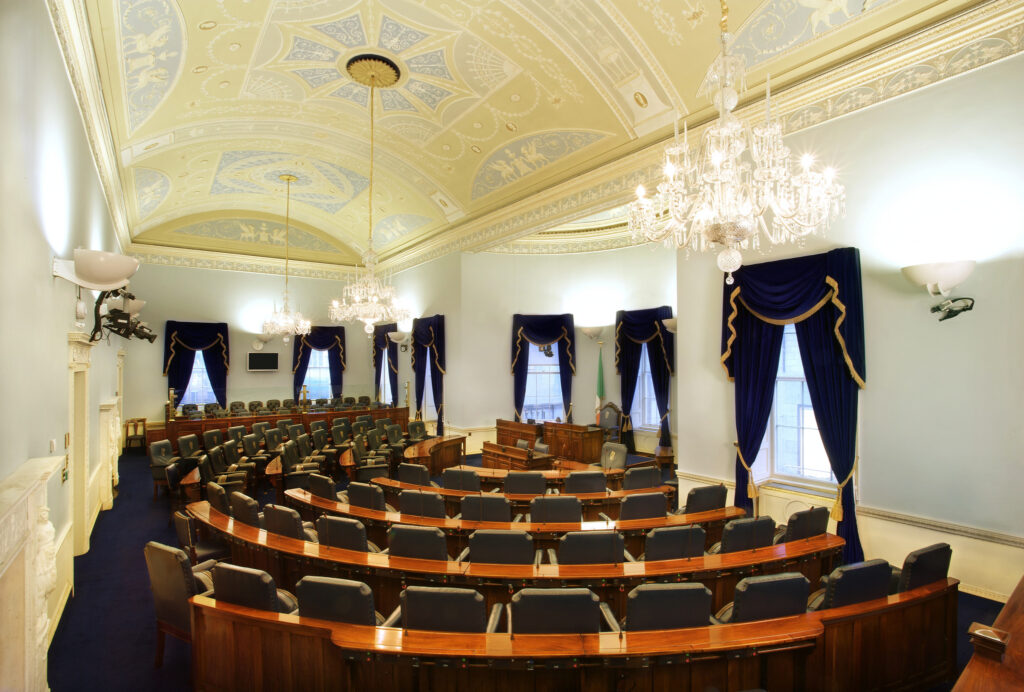On Monday, my friend and former Progressive Democrat colleague Jason O’Mahony argued in The Times (Ireland Edition) that the Seanad was an “offensive monstrosity” and criticised the manner in which it is elected.
He was, as usual, perceptive and pithy on the real shortcomings of the upper house as presently elected, but the real issue is exactly that – “as presently elected”.
There is absolutely no constitutional reason why the majority of the Seanad should continue to be elected by a tiny electorate, consisting of less than one in every four thousand of the citizens — namely TDs, county and borough councillors and outgoing senators — or, for that matter, why this tiny electorate should continue to have five votes each.
There is no impediment in the constitution to opening the five vocational panel elections to ordinary citizens. A simple act of the Oireachtas could provide for that.
The Quinn Zappone Bill by Feargal Quinn and Katherine Zappone proposed that every citizen should be permitted to register as a voter for one of the vocational panels of interest to that citizen. The seats in each such panel could, in this way, be filled by senators elected by ordinary citizens who had an interest in, say, education, agriculture or cultural matters.
A recent report by a cross-party group chaired by Maurice Manning suggested a compromise between the Quinn Zappone proposals and the present system, in which the citizen voters would elect the majority on each vocational panel and elected politicians would elect a minority.
It was hugely disappointing that Enda Kenny, following the defeat of his abolition referendum, accepted the need for reform, established the Manning group to find an all-party consensus on the nature of that reform, but promptly did nothing to implement its findings.
Was it cynicism or just carelessness for a taoiseach to engage in planning a Seanad reform and then to walk away from the process?
And now that we are again being told that reform of the Oireachtas is a priority for the new Dail, why should we trust Mr Kenny to lead that reform when he had the “reform ball” at his feet in front of an open goal and failed to kick it in?
If the Seanad had been abolished, the architecture and text of Bunreacht na hEireann would have been left a tottering wreck. All checks and balances would have been swept way. The Dail would have been left all-powerful on paper, but in reality under the thumb of the all-powerful government whip.
Since the politicians opted by default to keep their multiple votes on the vocational panels, it is all the more vital that the university panel seats be kept out of the control of the party whips. They are the last bastion of independence in the Seanad.
That is why, when Mr Quinn invited me to stand for the Seanad to continue the campaign for reform in his place, I was persuaded that I should do so.
I believe strongly that the Seanad should be a house for independent, experienced minds to participate in the legislative process and to strengthen our parliamentary processes against the inevitable localism and clientelism of the party system based on a Dail elected by multi-seat PR.
The Oireachtas is failing abysmally to play its part in the post-Lisbon EU legislative process. The Seanad can help fulfil that role.
Nor is there any reason why the expressed wish of the people that the university Seanad seats should include other universities and third-level institutions such as DCU and UL should not be implemented some 37 years after the constitution was amended to that effect in 1979.
We need reform badly. It cannot be delayed further. The Dail and the Seanad have been under-functioning as parliamentary institutions. The discussions on reform have concluded; the choices must now be made.
It was for these reasons that I, along with Mr Quinn, Ms Zappone, Joe O’Toole and Noel Whelan, in 2013 established Democracy Matters, a non-party civic society group committed to keeping and reforming the Seanad. We cannot walk away from that agenda now.
In 2016, 100 years after the fuse was lit to transform Ireland from a decaying province of empire into a sovereign, independent republic, we owe it to ourselves to ensure that the institutions of that republic function in a manner that serves the people rather than the interests of a small, self-serving political elite.
It is on that basis that I am seeking a mandate to ensure the Seanad is reformed and plays a part in building the true republic to which we all, as citizens, owe a duty of loyalty.

